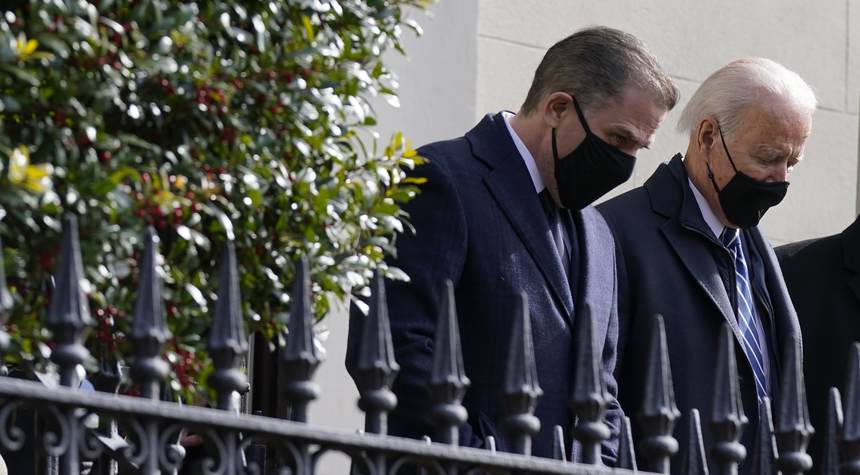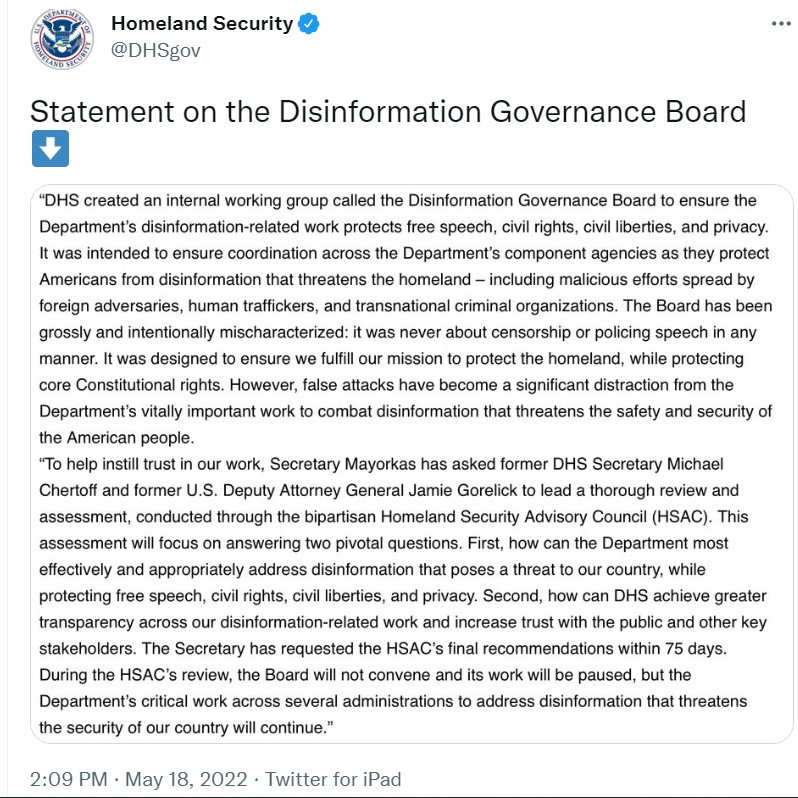Crime is out of control. Murders are up 40 percent since 2019 in America’s big cities. Violent assault is up 12 percent. Last November alone saw 3,000 car break-ins in San Francisco—a massive rise from the year prior.
The George Floyd riots, COVID lockdowns, and the media stoking the fires of racial resentment have produced the intended effect. This state of affairs cannot continue. America does need criminal justice reform.
We can start with public executions of the most vicious and bloodthirsty convicted criminals in our midst.
Peel away the interminable blather—that ocean of words, processes, and legal jargon that permeate our lives—and the true purpose of the state becomes clear: protecting life and property. Not providing school lunches, not fighting “hate,” not ending poverty—protection. A state that does not protect its citizens from enemies foreign and domestic will cease to exist.
To achieve this purpose, the state possesses power over life and death.
In foreign policy, this means the state can declare war in the name of self-defense. Domestically, it means the state has the power to execute criminals.
Unfortunately, our current crop of political elites is uninterested in protecting the citizens. Politicians in D.C. would never dream of actually trying to fund a border wall in order to stem the flow of illegal drugs. The 100,000 overdose deaths a year aren’t even a blip on the Congressional radar. Our rulers are much more interested in sending taxpayer money to Ukraine to fund an idiotic proxy war against Russia in the name of vague abstractions like “democracy.” The most recent aid package to our eastern European puppets contained $40 billion. It passed the Senate 86-11.
American politicians don’t really care about blacks in inner cities getting gunned down or poor whites shooting up fentanyl in the rust belt. What really matters is geopolitical intrigue in the middle of Asia.
Politicians and ordinary people alike need a firm and striking reminder of what government is actually supposed to do. That is why we need to start executing criminals in public. Every town square in every little town in America should have a gallows—a stark reminder of the power of the state to enforce order and decency. As a country, we need a heavy dose of reality to counteract the soporific effect of endless propaganda and life in the virtual world.
To make America great again, we need to make murderers, drug dealers, and rapists afraid again. They’ve gotten too comfortable reclining in the soft, uncalloused hands of liberal pity. No more. Pain and fear are powerful incentives. Decent and patriotic Americans need to learn to use these weapons in the name of preserving a civilized way of life.
Letting vicious killers and thugs run amuck is not humane. It isn’t kind. It is certainly not Christian. The Biblical God is a God of justice. It was Christ himself who said in Matthew 18:6 that he who corrupts children deserves to be cast into deep waters with a millstone around his neck. This is a Sunday school lesson more pedophiles need to learn firsthand.
To ameliorate injuries done to victims and to restrain evildoers are the two purposes of criminal justice. The point of executing criminals is not primarily to bring closure to the victims’ families, nor is it to satiate blood lust. Instead, the aim is to discourage others from committing particularly horrific crimes. Killing a pedophile won’t undo the rapes he has committed. It most certainly can, however, serve as a stark reminder to others not to abuse children.
Most criminals have lower than average intelligence and poor impulse control. But even they can grasp basic self-interest if they have help. Public punishment is that aid. But executions only have a deterrent effect when there is a clear connection between the crime and the punishment. Otherwise, killing criminals is basically pointless. The goal of executions is not gratuitous killing but to lower the overall number of criminals through deterrence and restraint. A murderer can’t kill again if he’s dead.
The last public execution in America is a useful object lesson in this regard. On June 7, 1936, a man named Rainey Bethea brutally raped and murdered an elderly woman by the name of Lischia Edwards in Owensboro, Kentucky. Bethea was on parole at the time and left a black celluloid prison ring with his name on it at the scene of the crime. He also left fingerprints at the crime scene that police later used to verify his presence in the room.
A few days later, Bethea was discovered by a local day laborer hiding in some bushes. He was captured by police and made his first confession on the way to being transported to the jail house. On June 12, Bethea made a second confession, revealing where he had placed jewels he had stolen from Edwards. Police found the jewels at the stated location, again confirming his presence at the scene of the crime.
On June 25 the jury convened. The trial lasted only three hours. The jury deliberated for only four minutes before giving its verdict: death by public hanging. All attempts at appeals were dismissed out of hand. Both federal and state judges, unlike today, respected the will of the jury. At sunrise on August 13—two months and a day after his heinous crime—Bethea was put to death in front of a crowd of 20,000 people.
Today, the average length of time served on death row is 18 years.
In the decades in between, our justice system has lost all common sense. The will of the jury no longer matters. The people have been systematically excluded from the legal system. What matters now is the administrative process carried out by unelected bureaucrats. The Rittenhouse trial is a good example. It was 15 months between the shooting and his self-defense trial. That was 15 months of nervous waiting—with Kyle Rittenhouse not knowing whether he would live a free man or lose his liberty for decades. The trial itself lasted for two weeks. The jury instructions were a mind-numbing 35 pages long. In America, the process is the punishment.
Judges and lawyers dominate this administrative complex—not the people. The legal system has become so byzantine that some 95 percent of cases are settled by plea deal in which alleged criminals plead guilty to lesser charges in order to avoid trial and the possibility of greater penalties.
This is unacceptable. Americans have a right to a speedy trial for a reason. Trials should be swift and the punishments themselves should be carried out quickly so that the connection between crime and its consequences is not lost. Juries, not lawyers, should be at the center of our legal system.
America needs a moral reckoning. Instead of the slow torture of solitary confinement and life sentences, our justice system should utilize our fear of intense, but swift, pain to deter the worst criminal elements. Flogging and public executions are superior and more moral deterrents than the lives lived by prisoners in America’s harshest penitentiaries.
Robert Hood, the former director of the federal Supermax prison in Florence, Colorado described conditions in his prison as a “clean version of Hell.” If we play out this metaphor, that would mean Hood himself must have been the Devil. Here again the satanic impulse rears its ugly head. The prisoners in the Supermax have no human contact. They are denied even the opportunity to look at the nearby Rocky Mountains.
These prisoners are vicious and brutal men, of course. They deserve to be punished, but this system of interminable prison sentences is both cruel and unusual. Public execution was common at the time of the founding. Life sentences in solitary confinement were not. Spiritual torture through unending imprisonment serves no purpose but mindless vengeance. Florence Supermax is not open to the public eye, either. Here again the people—the society to which a debt is supposedly being paid—are excluded from the real process of punishment. Long prison sentences move the locus of punishment away from the public life of the people into the secretive and opaque machinations of the administrative state.
This is an inefficient and ultimately inhumane system of punishment. It is not nearly effective enough, yet it comes at a great cost. Public executions are a necessary kind of harshness. We cannot have civilization without violence and pain. Human beings possess a natural inclination toward brutality and viciousness. This impulse cannot be eradicated, but it can be tempered. The question is not whether we will have punishment but what kind. That which is swift and harsh is, in the long run, far better than that which is slow, cruel, and invisible.









